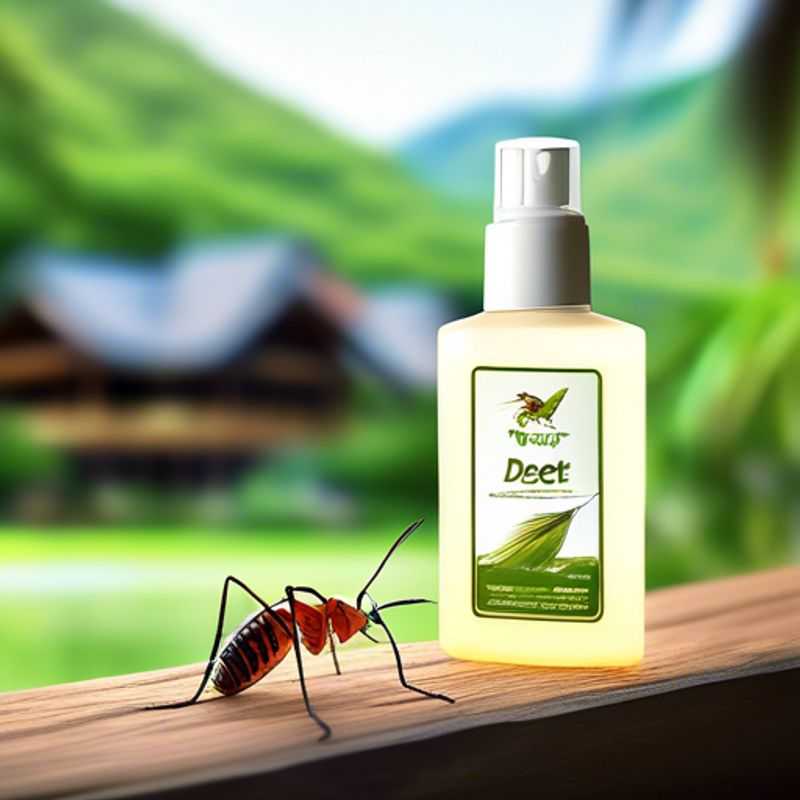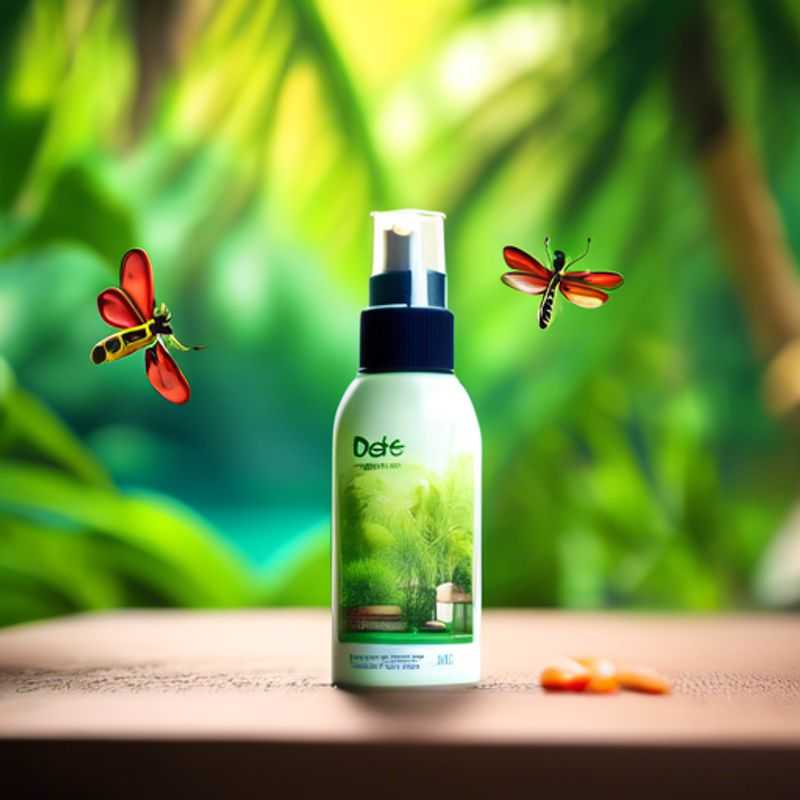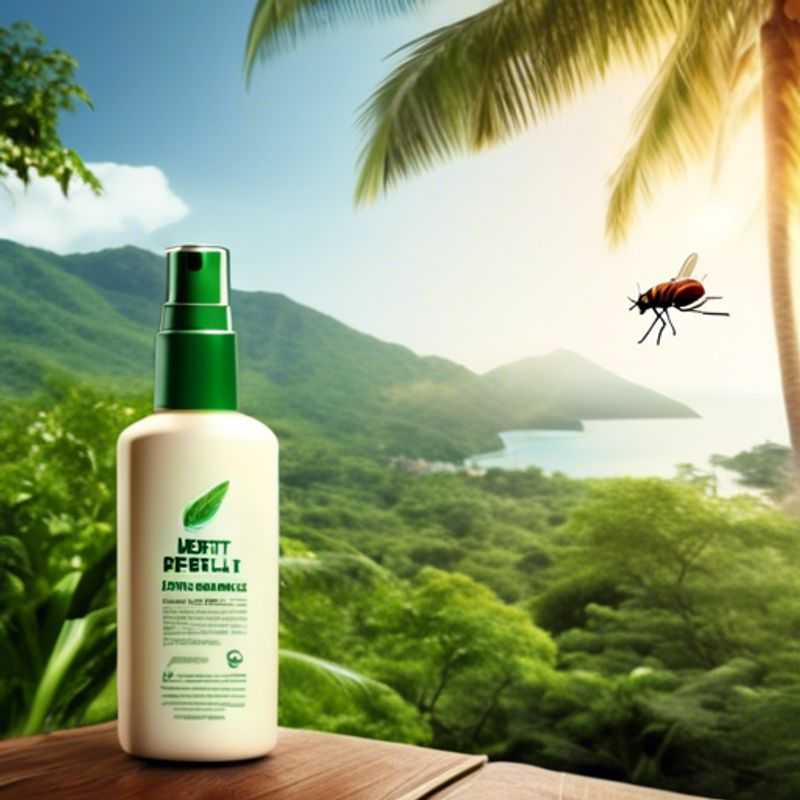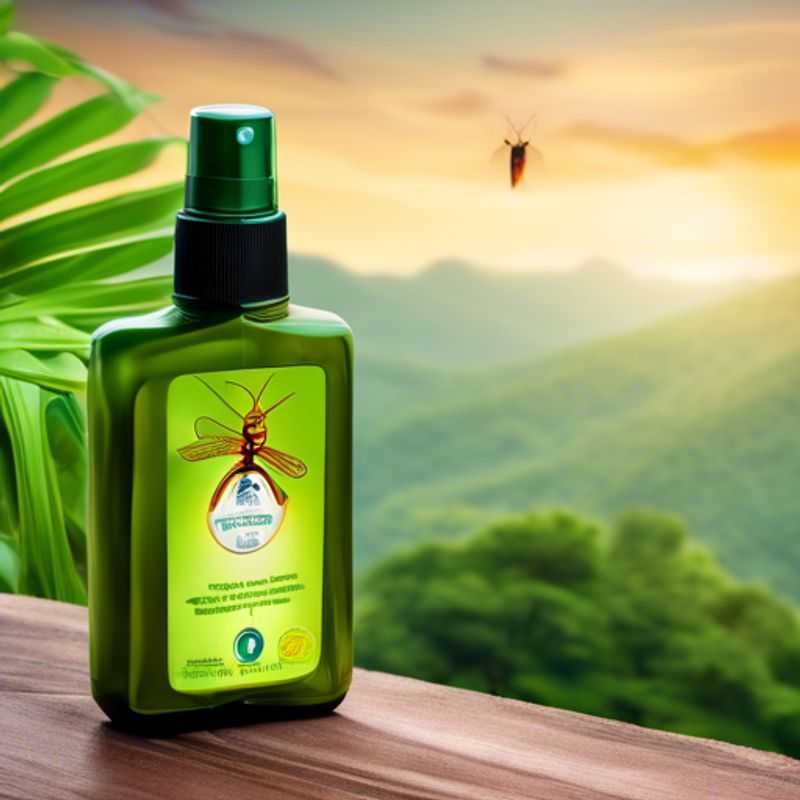Top 4 Most Important Tips on What You Need to Know Before Purchasing Insect Repellent with DEET

Top 4 Tips: Check DEET Concentration, Consider Natural Alternatives, Verify Expiration Date, Apply Properly and Avoid Sensitive Areas
When it comes to buying insect repellent, particularly those containing DEET, there are a few crucial tips to keep in mind. First and foremost, always check the active ingredient and the concentration of DEET in the product. A higher concentration may offer longer-lasting protection, but it’s essential to find a balance that suits your needs.
If you prefer a more natural approach, consider alternative natural insect repellents that may suit your lifestyle better. These can be effective and often come with fewer chemicals, making them a popular choice for those with sensitive skin or specific preferences.
Before making a purchase, don’t forget to verify the product's expiration date. Using expired insect repellent can diminish its effectiveness, leaving you vulnerable to pesky bites!
Lastly, applying insect repellent properly is key. Make sure to avoid sensitive areas like your eyes and mouth, and apply it evenly on exposed skin for the best protection. With these tips in mind, you’ll be ready to tackle any outdoor adventure without the worry of unwanted insect encounters!
Before purchasing Insect Repellent (with DEET)
- Check the active ingredient and concentration of DEET.

Decoding DEET: How to Check Active Ingredients and Concentration for Maximum Protection
When it comes to insect repellents, DEET (N,N-diethyl-m-toluamide) is a tried-and-true champion, offering effective protection against mosquitoes, ticks, and other biting insects. But, like any powerful tool, knowing how to use it correctly is key. That's where understanding the active ingredient and concentration comes in.
The magic lies in the DEET concentration, which dictates how long the repellent lasts. Higher concentrations generally provide longer-lasting protection, but they're not necessarily better. Think of it like this: a 30% DEET solution might keep those pesky mosquitoes away for 5-7 hours, while a 10% solution might offer 2-4 hours of protection. The Environmental Protection Agency (EPA) recommends choosing a DEET concentration based on your individual needs and the length of time you'll be exposed to insects.
Remember, there's no one-size-fits-all answer. Your personal tolerance, activity level, and the environment you're in all play a part. So, take a moment to read the label carefully, choose the right concentration, and enjoy the great outdoors without the annoying bites!

Say No to Bugs, Say Yes to Nature: Exploring Alternative Insect Repellents
For those seeking a gentler approach to bug-repelling, natural options are increasingly popular. Essential oils like citronella, lemongrass, and eucalyptus are common choices, often blended into sprays, candles, or diffusers. These scents can deter mosquitoes, ticks, and other biting insects, creating a more pleasant outdoor experience.
While these natural options are often perceived as safer for the environment and for individuals with sensitive skin, it’s crucial to remember that they may not be as effective as chemical repellents. For robust protection, especially in heavily infested areas, researching and combining different methods might be necessary.
Always check with a healthcare professional before using essential oils, especially if pregnant, breastfeeding, or have underlying medical conditions. Direct application to skin can cause irritation, so diluted blends are generally recommended.
Beyond essential oils, natural repellents can include plant-based products like garlic, peppermint, and lavender. These can be incorporated into sprays, lotions, or even planted around your home. Consider using a combination of different natural repellents to create a more effective barrier against bugs.
While the allure of natural bug repellents is strong, remember that their effectiveness can vary depending on the insect species and individual sensitivities. Always be mindful of potential allergic reactions and utilize safe application methods.

Don't Get Caught with a Stale Purchase: The Importance of Checking Expiration Dates
Hey there, fellow shoppers! You know that feeling when you snag an incredible deal, but then you get home and realize... the expiration date is staring back at you like a disappointed grandma. It's happened to the best of us, so let's talk about how to avoid those "oops" moments. First things first, it's always a good idea to check the expiration date before you even grab that awesome bargain. It's a simple habit, but trust me, it saves you a lot of hassle down the road. Now, here's the thing - expiration dates aren't just about "best by" or "use by" dates. It's about ensuring the safety and quality of what you're buying, especially when it comes to food, medications, or personal care products.
Look, I know we all have those moments of "I'll just grab it, I'll use it later." But remember, expired products can lose their effectiveness, sometimes even becoming harmful. So, if you're on the fence about something, take a moment to check that date. You'll be glad you did! The expiration date is usually printed on the package, often near the barcode or ingredients list.
Now, here's the part that gets interesting. Sometimes, you'll see "sell by" dates, which are more about stock management for stores than about the product's actual shelf life. For those products, feel free to use your best judgment. If it looks and smells good, and the package is intact, you're usually safe. Of course, if it's something you're unsure about, err on the side of caution.
I'm not saying you need to be a detective every time you shop, but taking a quick peek at that date is a simple way to ensure you're getting the most out of your purchases. And who knows, maybe you'll even inspire some other shoppers to become more date-savvy! So, happy shopping, and remember to always check the expiration date. You'll be glad you did!

How to Apply Insect Repellent Properly and Avoid Sensitive Areas
Listen, I know you're busy and you want to get out there and enjoy nature, but let's talk about applying insect repellent properly. It's not just about keeping the bugs away; it's about keeping yourself safe!
First, remember, not all repellent is created equal. Choose one with DEET, picaridin, or oil of lemon eucalyptus. Read the label carefully, it'll tell you how long it lasts and what percentage of active ingredient works best for your needs.
Now, let's apply it. Think of it like painting your skin – a thin, even layer is all you need. Don't be shy! Cover your exposed skin, but avoid your eyes, mouth, and cuts. After you've applied it, let it dry completely. And remember, reapply every few hours, especially after sweating or swimming.
Here's a tip: Use a lightweight repellent for your face, especially if you're prone to acne or sensitive skin. There are some great options out there, just be sure to follow the same rules about applying it carefully.
Now, get out there and enjoy the adventure, bug-free! Just remember, check the label for specific instructions. And if you have any doubts, consult with a medical professional. Happy exploring!
